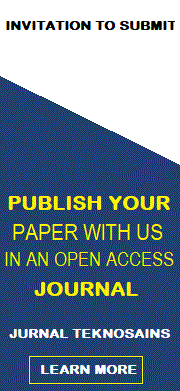Urban tourism space based on bike-sharing tourist in Yogyakarta city
Danar Wiyoso(1*), Diananta Pramitasari(2)
(1) Master Program in Architecture, Faculty of Engineering, Universitas Gadjah Mada Yogyakarta, Indonesia
(2) Department of Architecture and Planning, Faculty of Engineering, Universitas Gadjah Mada Yogyakarta, Indonesia
(*) Corresponding Author
Abstract
This paper identifies the urban tourism space in a complex way as chosen by the bike-sharing tourists in Yogyakarta. The space is defined as not only the tourist attraction object which has become a common attraction but also the elements of urban architecture such as landmarks, districts, paths, edges, and nodes that becoming lanes, stop points, and the destination for the tourist when cycling around using bike-sharing. The data collecting used in this research is person-cantered mapping by following the bike-sharing tourists’ movement and giving questionnaires to find out the tourists’ motivation in using bike-sharing for tourism. The hypothesis shows that the tourists would prefer to choose the common attraction as an urban tourism space in Yogyakarta. But by cycling, the tourists will be able to seek a new experience because they can be more flexible in exploring the space with uniqueness which has the shape of urban architecture elements. The research results showed that landmarks and paths were the two urban architecture elements that gave strong characteristics toward urban tourism space, as preferred by the bike-sharing tourists in Yogyakarta. The tourist attraction with both characteristics was located around the city centre. It indicated that the distribution of visits is still centrally located close to the bike shelters. So that the tourists could go to the other unique destinations in Yogyakarta, thus the researcher recommends that the bike shelters need to be evenly spread approaching the tourism attractions and amenities.
Keywords
Full Text:
PDFReferences
Haryadi and Setiawan, B. 2010. Arsitektur, Lingkungan, dan Perilaku: Pengantar ke Teori, Metodologi dan Aplikasi. Gadjah Mada University Press. Yogyakarta.
Kusmayadi and Sugiarto, E. 2000. Metodologi Penelitian dalam Bidang Kepariwisataan. Gramedia Pustaka Utama. Jakarta
Law, C. 1996. Tourism in Major Cities. International Thomson Business Press. London.
Leiper, N. 1979. “The Framework of Tourism: Towards a Definition of Tourism, Tourist, and The Tourist Industry”. Annals of Tourism Research, 6 (4): 390-407.
Lynch, K. 1971. The Image of The City. 7th ed. The MIT Press. Massachusetts.
MacCannell, D. 1973. “Staged Authenticity: Arrangements of Social Space in Tourist Settings”. American Journal of Sociology, 79 (3): 589-603.
Midgley, P. 2009. “The Role of Smart Bike-sharing Systems in Urban Mobility”. Journeys, 23-31.
Page, S. and Hall, M. 2003. Managing Urban Tourism. Pearson Education Limited. Harlow.
Yang, Z. 2018. “Problems and Countermeasures of Bike-sharing Tourism in China”. Advances in Economics, Business and Management Research (AEBMR), 60.Article Metrics
Refbacks
- There are currently no refbacks.
Copyright (c) 2021 Danar Wiyoso, Diananta Pramitasari

This work is licensed under a Creative Commons Attribution-ShareAlike 4.0 International License.
Submit an Article Tracking Your Submission
Editorial Policies Publishing System Copyright Notice Site Map Journal History Visitor Statistics Abstracting & Indexing










